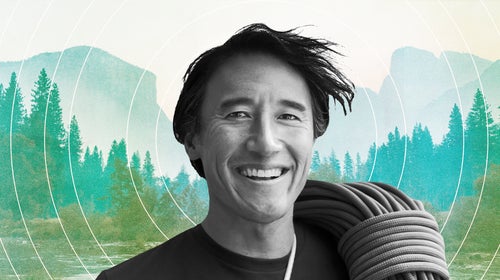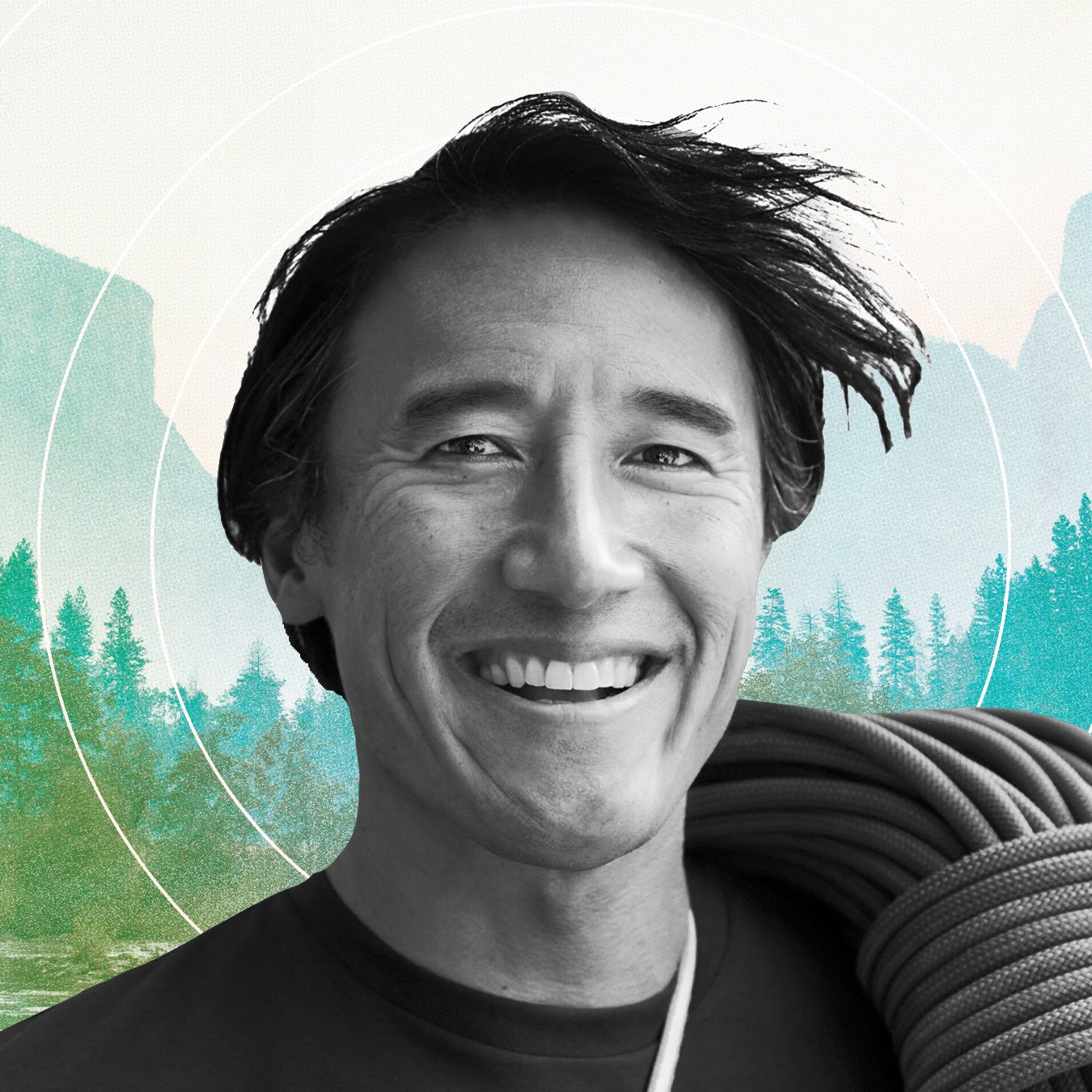On my desk sits a copy of ���ϳԹ���’s current April/May issue. On its cover,��Jimmy Chin is smiling, with a coiled rope over his shoulder. In big white letters, the main cover line reads��“Good News!” Indeed,��there’s a lot to look forward to in the months ahead, especially after the year we’ve had.
As a first-generation Filipino American and an avid climber and runner, I feel an immense sense of pride when I see Asian Americans like Jimmy in the spotlight. Having a climbing legend like him positioned��front and center on a national magazine��symbolizes that��outdoor spaces are for people who look like me, too.
Yet these moments still feel few and far between. And I wish that our cover line��was true of our country’s current racial climate. We’re reckoning with the rise of anti-Asian hate, after eight people were killed—six of them Asian—in the�� in March, just a couple weeks before Jimmy’s cover hit newsstands. Meanwhile, targeted�� have risen in the past year. In late March,��a man in New York City , kicking and stomping her and yelling, “You don’t belong here.” These attacks have resurfaced a common theme for many Asian Americans like me: we mostly��feel like we’re accepted in this country until instances like Atlanta or New York��yank that sense of belonging away. The same dynamic can be true of our experience outdoors: we belong, until we don’t.
I don’t explicitly think about race when I’m at the crag or on the trail; I’m there to spend time in nature, with friends, and sometimes just with my own thoughts. And in the past, I haven’t talked much about being Asian��American with my climbing partners or most of my coworkers at ���ϳԹ���. I often feel guilty bringing up the topic, because so much of my time outdoors has been positive. In America, most people continue to��think of race as a Black��and white issue. And some still��don’t understand that racism is more than��overt acts, like calling someone a slur. As an Asian��American, there’s often a psychological burden to prove to others��that we, too, experience racism and bias.
Although I haven’t experienced explicitly��racist encounters while being outside, my memory is peppered with more nuanced instances of marginalization—like noticing I’m the only non-white person I’ve seen all day at the wall, or being asked where I’m from from (I guess Virginia��isn’t a good enough answer). I’ve even seen��my non-white peers internalize the idea that the outdoors isn’t their domain—in college, some of them would describe my weekend adventures in nature as me going off to do “white-people stuff.” Such comments made me feel like my hobbies weren’t justified��for someone with my skin color. The feeling of being “the only one” has extended to my time working in the outdoor industry, too;��I’m the only male person of color on ���ϳԹ��� magazine’s editorial staff. I can count on two hands the amount of Asian��Americans I’ve met at various PR dinners and brand meet and��greets, and this lack of representation only feels��magnified at��big industry events like Outdoor Retailer. These experiences amplify��a nagging��question at the back of my mind: Do people think I belong here?
To be Asian��American��in this country, and especially��in the predominantly white��outdoors,��is to know these��feelings of tenuous belonging.
And even��as much as I celebrate��the��Jimmy Chin cover, it also brings up complicated memories about the times I’ve been compared to him.��At a get-together in 2019, a friend’s kid said I look like Jimmy. That friend then brought it up in front of another group, which was met with laughter all around. “How cute!” one��person remarked. A few months ago, I told a friend that I was planning a climbing trip to��California and would be��sleeping in the back of my Honda CR-V. “You’re going full Jimmy Chin, eh?” they quipped.
In these instances, I acted��flattered. Jimmy has been a hero to me since I learned about him in the pages of ���ϳԹ��� in college. I’d always paid special attention to him—in a sea of white dudes, he stood out to me;��he was essentially living my dream, going on adventures and getting paid to document them.
But in truth, I also��felt uncomfortable in these moments, because I’m obviously not comparable to Jimmy, according to any metric. Professional mountain biker Eliot Jackson, who is Black, described what I felt in an essay he published last summer. On the topic of being often compared to Black motocross racer James Stewart,��Jackson wrote: “How do I take this? Do I ignore the fact that people might not be seeing me for who I am and just focus on the good intention? Or do I dig in deeper and say, ‘I understand what you’re saying, but are you just comparing me because of the color of my skin?’”
Ultimately, those comparisons were embarrassing to me because��my race felt hypervisible. When my��friends made their��lighthearted comments, why didn’t they think to mention any other famous climber, like Tommy Caldwell��or Alex Honnold? It felt apparent that they did see me for my race, and that felt like��a tough pill to swallow��when most of my life I’ve tried��to think that people don’t see me any differently from them.
At the time, I didn’t do much to wave off the comparisons to Jimmy Chin. On Halloween a few years ago, I threw on a tuxedo and crafted a makeshift Oscar statue out of aluminum foil and gold spray paint—a nod to��Free Solo’s Academy Award win, which Jimmy codirected. Celebrating him is a double-edged sword: It’s awesome that Jimmy is such a popular figure. Yet he stands out because he’s Asian��American. These scenarios reveal��that the list of outdoor rock stars who look like me—an Asian��American��man—is short.
To be Asian��American��in this country, and especially��in the predominantly white��outdoors,��is to know these��feelings of tenuous belonging. You mostly blend in—you think—until��you see an article celebrating Olympic gold medalist Chloe Kim, followed by����and not speak up about Asian American��accomplishments.��Or until you read . Or until a shooting or a hate crime makes the headlines. Then��the illusion of belonging is��gone, like you were never part of the club in the first place.
But taking pride in this magazine cover—and writing about how it excites and inspires me, as I’m sure it will others—couldn’t have come at a better time. Seeing Jimmy pose on the cover is a summation of his accomplishments, and that’s worth celebrating right now, during��, even if the moment is simple, short-lived, and happening during a time when there’s also plenty of discouraging news.
Next to Jimmy on our cover, one line reads��“49 Reasons to Feel Hopeful in 2021.”��For me, this cover shoot is one of those reasons. I think it’s worth chasing that sense of belonging, no matter how elusive it is, or how many times it’s snatched away. That line might as well read: “You can be here, too.”


